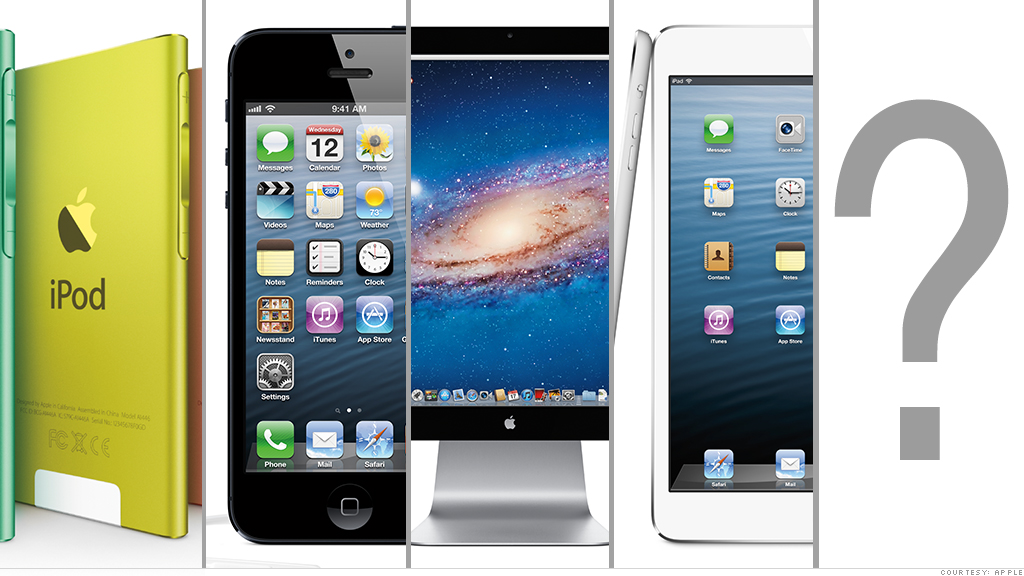
A larger iPhone, a smaller iPad, a thinner Mac and a taller iPod are what count for innovation at Apple these days.
The slate of rumors about upcoming Apple (AAPL) products is similarly uninspiring. An even bigger or cheaper iPhone? Meh. A watch? Yawn.
Some Apple followers have begun worrying that the company has lost the secret formula that made it so successful during the Steve Jobs era.
But instead of the end of Apple's innovation streak, what we may be witnessing is Apple's response to a mobile device market that's all grown up. The smartphone, in its current form, has been around for six years now. Tablets are replacing PCs. When consumers already own an average of five mobile devices, according to Yankee Group, new category killers that give us even more stuff to carry around aren't what we really need.
"I'm not buying the 'Apple isn't innovating because it hasn't done a category-buster in three years' story," said Carl Howe, analyst at Yankee Group. "It's a bit like saying Toyota (TM) is doomed because Toyota's latest category-buster, the Prius, is 11 years old."
In a mature market, innovation is bound to focus on extending the usefulness of what's already out there, the same way that webcams, microphones, touchpads and touchscreens came along after the PC and enhanced the way we interact with our machines. Watches, glasses, shoes and wearable computing gizmos that all connect to one another seem like a logical evolution -- if not revolution -- of the mobile device space.
Some believe that to continue succeeding in mobile, Apple needs to create an ecosystem of devices that connect to the iPhone.
Others think Apple has a bigger trick up its sleeve. The company could invent wearable devices that make the iPhone irrelevant, similar to how the iPad has begun to replace the Mac.
"If Apple pitches a watch as a potential smartphone replacement, it could have disruptive potential," said Sameer Singh, head analyst at BitChemy Ventures, a technology incubator.
Apple has become a victim of its own success. It's under tremendous pressure by investors and Wall Street analysts to outperform its rivals and top itself quarter after quarter.
Yet Apple's multi-year run as the world's most valuable company -- while maintaining startup-like growth -- was bound to end eventually. Now, analysts say, is the time for Apple to retool and evolve.
"It's not a bad strategy for Apple to take its time and deliver the best products rather than be first to market," said Laura DiDio, principal of consultancy ITIC. "To think that Apple will grow its revenue at 50% year over year and introduce revolutionary products and pioneer new markets annually is an unrealistic expectation."
That doesn't mean Apple can kick back and simply enjoy the multi-billion dollar successes the company has created. Sales of Macs have begun to slip, iPhone sales are showing signs of plateauing in developed markets, iPad profits are being brought down by the cheaper iPad mini, and iPods have been in a multi-year decline. Apple's stock has fallen by a third over the past five months.
"The high-technology industry is not known for its patience," DiDio said. "Apple has some time, but it doesn't have the luxury of four or five years to sit on the sidelines and be a follower."





